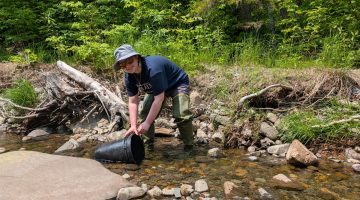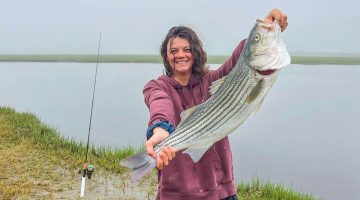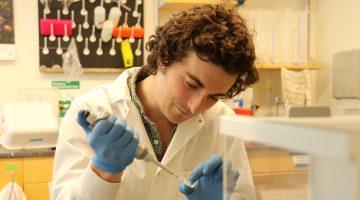Maine Sea Grant helping state conserve Atlantic salmon
Whether it’s through fish stocking, habitat restoration or research, the University of Maine-led Maine Sea Grant is helping the Maine Department of Marine Resources (DMR) conserve Atlantic salmon in the Gulf of Maine — the last wild populations of the species in the U.S. Through a program offered by Maine Sea Grant and NOAA Fisheries […]
Read more



